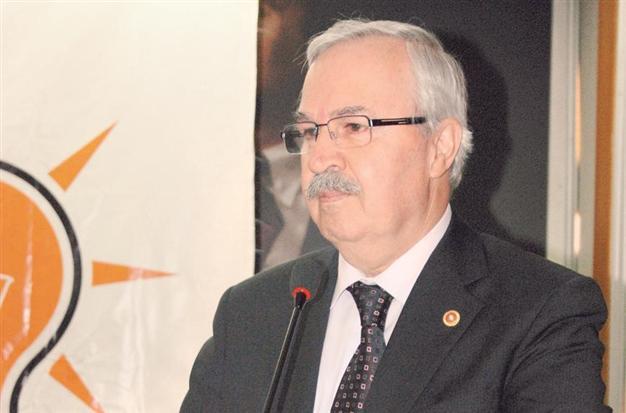Ex-ministers' assets 'could be confiscated'
Bülent Sarıoğlu ANKARA

‘If we detect an increase [in their] assets, its amount is not important to us,’ Köylü, a lawmaker from the ranks of the Justice and Development Party, says. AA photo
With just days left until a key vote at a parliamentary panel on whether to send four former ministers allegedly involved in corruption to the Supreme Council, the head of the panel argued some assets of the ministers could be confiscated in the event the inquiry reveals the men received illegitimate benefits.“If we detect an increase [in their] assets, its amount is not important to us. We have no luxury to say, with an eyeball estimate, ‘there is a reasonable increase [in assets].’ We should underline this point.
Plus, it would have a consequence. These assets should be confiscated,” Hakkı Köylü, a lawmaker from the ranks of the Justice and Development Party (AKP) who is chairing the 14-member commission, said according to the minutes of a Dec. 22, 2014, meeting of the panel.
Former Economy Minister Zafer Çağlayan, former EU Minister Egemen Bağış, former Interior Minister Muammer Güler and former Environment Minister Erdoğan Bayraktar have faced accusations of bribery and influence-peddling. All four have been cleared judicially of any wrongdoing. However, the prosecution against four former ministers continues at the parliamentary panel which will vote on Jan. 5 on whether they should be sent to the Supreme Council. The panel will submit its report to the General Assembly on Jan. 9 at the latest, while the final vote will take place in the coming weeks on whether the former ministers should be tried before the Supreme Council.
At the meeting, Çağlayan, Bağış and Güler filed written objections to reports displaying the growth in their wealth which were prepared by the Financial Crimes Investigative Board (MASAK). According to the minutes, Köylü said they did not take Çağlayan’s objections against experts seriously while rejecting Bağış’s objection that the panel could not investigate his accounts before 2013. Köylü sided with the opposition members of the panel and stressed they had the right to investigate accounts of four former ministers.
According to the minutes, Mustafa Akış, another AKP member of the panel, stressed that there were still unclear points in his mind.
“This commission is perhaps one of the most crucial commissions of the 15 or 20 years in Turkish political life. As we’re listening to the testimonies and writing the reports, some uncertainties in your minds are [only] slowly being removed. From this perspective, this case is still very immature. Let me express my personal view: I still could not clear up some things in my mind,” he said.
















